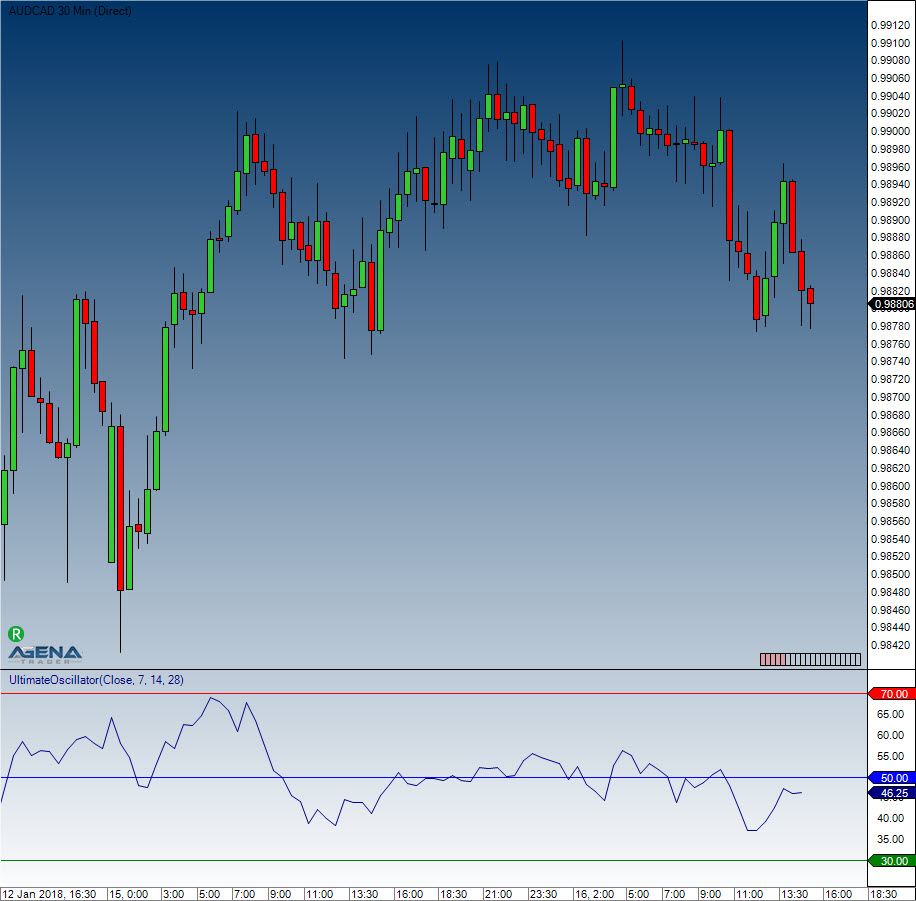Ultimate Oscillator
Description
Interpretation
Usage
UltimateOscillator(int fast, int intermediate, int slow)
UltimateOscillator(IDataSeries inSeries, int fast, int intermediate, int slow)
UltimateOscillator(int fast, int intermediate, int slow)[int barsAgo]
UltimateOscillator(IDataSeries inSeries, int fast, int intermediate, int slow)[int barsAgo]Return value
Parameters
Visualization

Example
Last updated